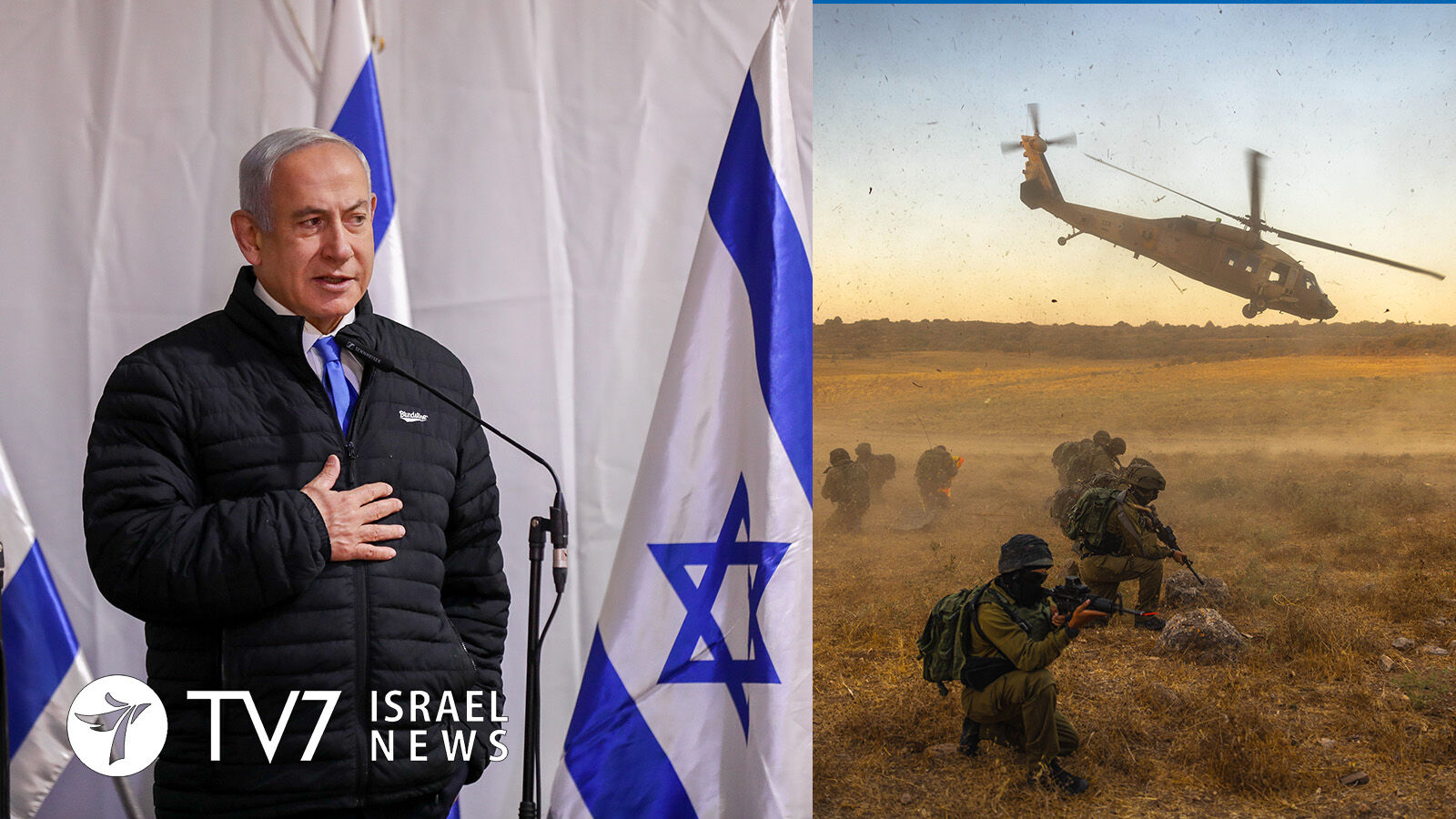The declaration was made following security situation assessment at the base of the Duvdevan Special Operations Unit in the IDF Central Command area.
By Jonathan Hessen and Erin Viner
“In any future scenario, there is no alternative to our security control on the ground” by which “we mean going into the field” that includes “a range of operations,” Israeli Prime Minister Benjamin Netanyahu said, telling the troops, “You are the vanguard of the security capability of the State of Israel in Judea and Samaria, and not only there. I would like to commend you for this. I want you to continue sharpening the spear-point. Watch over the country and watch yourselves, each other.”
The Premier was accompanied during the visit, focused on gaining an “intelligence picture in the sector,” by Defense Minister Yoav Gallant, where “underscored the main challenges facing the Command in general and the unit in particular, and the constantly changing conditions Central Command is called upon to deal with,” said a government statement.
Also participating in the discussion were Chief of the Prime Ministers Staff Tzachi Braverman, National Security Council Director Tzachi Hanegbi, IDF Chief of Staff Lt. Gen. Herzi Halevi, Israel Security Agency (ISA, Shin Bet) Director Ronen Bar, the Prime Minister’s Military Secretary Maj.-Gen. Avi Gil, Head of Central Command Maj. Gen. Yehuda Fox, Coordinator of Government Activities in the Territories (COGAT) Maj.-Gen. Rassan Aliyan, the ISA head of the Jerusalem, Judea and Samaria sector, and Duvdevan Commander “Lt. Col. D.”
Lt. Col. D reviewed the unit’s operation activity, after which Prime Minister Netanyahu further thanked the troops for their great contribution to the security of the State of Israel.
Noting that since his last inspection that the Duvdevan’s “advancement, resourcefulness and creativity” in the unit has led to indisputable positive results, Netanyahu hailed the soldiers for taking considerable personal risks during numerous successful counter-terrorist operations that saved an incalculable number of lives, both among Israeli civilians as well as their own.
“We are contending in a region in which there is a continual struggle between those who want to move forward with us versus radical Islamist forces that want to take us back to medieval times. It is a major struggle,” stressed the Israeli leader.
Pointing out that Israel continues to confront it’s “greatest enemy, Iran” that poses the most significant external threat, Netanyahu observed that the nation’s defense establishment has been “relatively successful at the moment” to hold back and deter local foes, “whether in Gaza or in Lebanon.”
Addressing the decision by President Mahmoud Abbas to suspend security coordination with Israel and failure to rein in lawlessness, Prime Minister Netanyahu stated, “Of course, we would be pleased if the Palestinian Authority would do its share – but we see that it is not doing its part. In most cases, it is not confronting those who need to be confronted. It is unclear how long this will continue but we certainly cannot rely on it.”
While Israeli defense officials view the security situation in Judea and Samaria as its tensest in recent years amid mounting probability of a future escalation in hostilities, CIA Director William Burns revealed that the United States intelligence community holds an even graver view.
Burns said during a Q&A session at the University of Georgetown last week that he was “quite concerned about the prospects for even greater fragility and even greater violence between Israelis and Palestinians following discussions with leaders on both sides during his recent visits to Jerusalem and Ramallah. He went on to assert that the current round of violence bears “a very unhappy resemblance” and similar “realities” to the Second Intifada Palestinian Uprising when he was serving as a senior US diplomat 20 years ago.
